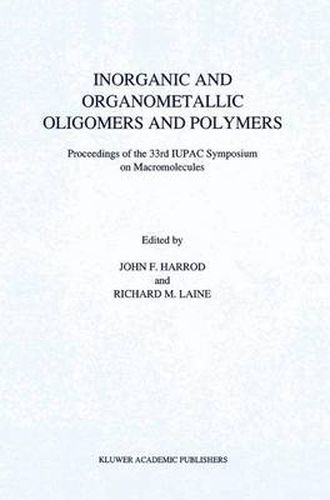Readings Newsletter
Become a Readings Member to make your shopping experience even easier.
Sign in or sign up for free!
You’re not far away from qualifying for FREE standard shipping within Australia
You’ve qualified for FREE standard shipping within Australia
The cart is loading…






This title is printed to order. This book may have been self-published. If so, we cannot guarantee the quality of the content. In the main most books will have gone through the editing process however some may not. We therefore suggest that you be aware of this before ordering this book. If in doubt check either the author or publisher’s details as we are unable to accept any returns unless they are faulty. Please contact us if you have any questions.
Although, carbon is only one of one hundred plus elements, the polymer science lit erature consists primarily of studies on carbon based polymers. In part, this reflects the varied feedstock sources and in part, the type of bonds and bond forming reactions avail able to form organic polymers that are not available to the inorganic and organometallic chemist. However, recent intense interest in polymers with novel optical, electronic or magnetic properties or polymers that can serve as precursors to ceramic, semiconductor, metallic or superconductor materials has served as a driver for the development of novel synthetic routes and characterization techniques that have launched many new inorganic and organometallic oligomers and polymer systems. The following chapters represent an effort to provide an overview of several new and continuing areas of development in inorganic and organometallic polymer science. This book represents the second in a series of books we have edited on inorganic and organometallic polymer chemistry (1. Transformation of Organo-metallics into Common and Exotic Materials, NATO ASI Series Vol 141. 3. Inorganic and Organometallic Polymers with Special Properties, NATO ASI Series in press). In this series, we attempt to develop, for the reader, an understanding of the breadth, depth and potential of inorganic and organometallic polymer science.
$9.00 standard shipping within Australia
FREE standard shipping within Australia for orders over $100.00
Express & International shipping calculated at checkout
This title is printed to order. This book may have been self-published. If so, we cannot guarantee the quality of the content. In the main most books will have gone through the editing process however some may not. We therefore suggest that you be aware of this before ordering this book. If in doubt check either the author or publisher’s details as we are unable to accept any returns unless they are faulty. Please contact us if you have any questions.
Although, carbon is only one of one hundred plus elements, the polymer science lit erature consists primarily of studies on carbon based polymers. In part, this reflects the varied feedstock sources and in part, the type of bonds and bond forming reactions avail able to form organic polymers that are not available to the inorganic and organometallic chemist. However, recent intense interest in polymers with novel optical, electronic or magnetic properties or polymers that can serve as precursors to ceramic, semiconductor, metallic or superconductor materials has served as a driver for the development of novel synthetic routes and characterization techniques that have launched many new inorganic and organometallic oligomers and polymer systems. The following chapters represent an effort to provide an overview of several new and continuing areas of development in inorganic and organometallic polymer science. This book represents the second in a series of books we have edited on inorganic and organometallic polymer chemistry (1. Transformation of Organo-metallics into Common and Exotic Materials, NATO ASI Series Vol 141. 3. Inorganic and Organometallic Polymers with Special Properties, NATO ASI Series in press). In this series, we attempt to develop, for the reader, an understanding of the breadth, depth and potential of inorganic and organometallic polymer science.